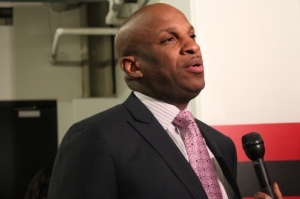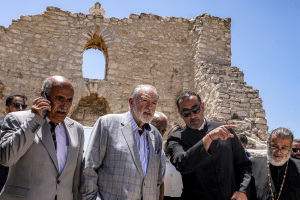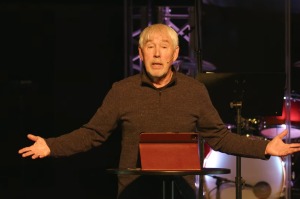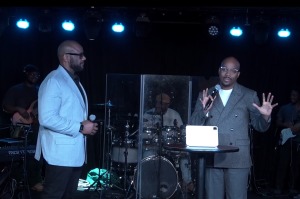Ecumenical Group Seeks to Reconcile with Black Denominations
An ecumenical group is seeking to reconcile and bring back two of its historically black partner denominations that refused to participate in a recent meeting due to their frustration with the group's progress on the racism issue.
To invite the disgruntled members back, members of Churches Uniting in Christ (CUIC) sent a letter to the top leaders of the African Methodist Episcopal (AME) and African Methodist Episcopal Zion Church (AME Zion) on Jan. 16 to stress that "we are incomplete without you," said participating United Methodist Bishop William Oden to the United Methodist News Service (UMNS).
The absence of the two denominations were said have overshadowed the ecumenical meeting.
"The question that was in the room but not on the table was what to do about these who are absent," said United Methodist Bishop Albert "Fritz" Mutti, chairperson of the event's planning committee and interim leader of the United Methodist Commission on Christian Unity and Interreligious Concerns.
The some 60 participants at the meeting held in St. Louis acknowledged that the ecumenical group "has not lived up to its goal of dismantling racism," but believe the AME and AME Zion presence "is essential" to fulfilling that mission.
"The top priority is to seek reconciliation with the CUIC family," said the Rev. W. Douglas Mills, an executive with the Commission on Christian Unity. "There's no moving ahead until we get that reconciliation."
CUIC member communions include the Christian Church (Disciples of Christ), The Episcopal Church, International Council of Community Churches, Moravian Church Northern Province, Presbyterian Church (USA), the United Methodist Church, the United Church of Christ and three historic black churches. Another historically black denomination, the Christian Methodist Episcopal Church, was present at the meeting.
Additionally, the Evangelical Lutheran Church in America is a "partner in mission and dialogue."
CUIC was inaugurated in early 2002 and the group's first call to action was a pledge to combat racism. Members participated in the Memphis march on Jan. 21, 2002, in support of Martin Luther King Jr.'s dream and signed an appeal to its churches on the balcony of the Lorraine Motel, where King was killed in 1968.
"We didn't want to start with something simple, something easy," said United Methodist Bishop Melvin Talbert, the ecumenical officer at the time, to UMNS. "By making combating racism our No. 1 priority, we're showing that we're serious about responding to God's call."
CUIC's commitment to racial justice was the first public step for the new group.
A St. Louis meeting participant, in response to the fallout over the racism issue, said she thinks it is "very important" that "we get our members back into the family."
Jerry Ruth Williams, a member of the Commission on Christian Unity, said she wants to listen to the black denominations' concerns and "hear what they have to say and hope that they decide to return."
The leaders at the meeting, noting the dissatisfaction of the two black denominations with progress on the racism issue, discussed how setting goals is not enough and the group needed to learn that "dealing with racism is dealing with relationships," according to Mutti.
The AME and AME Zion Churches, although not present at the recent meeting, has not officially withdrawn from CUIC.
























